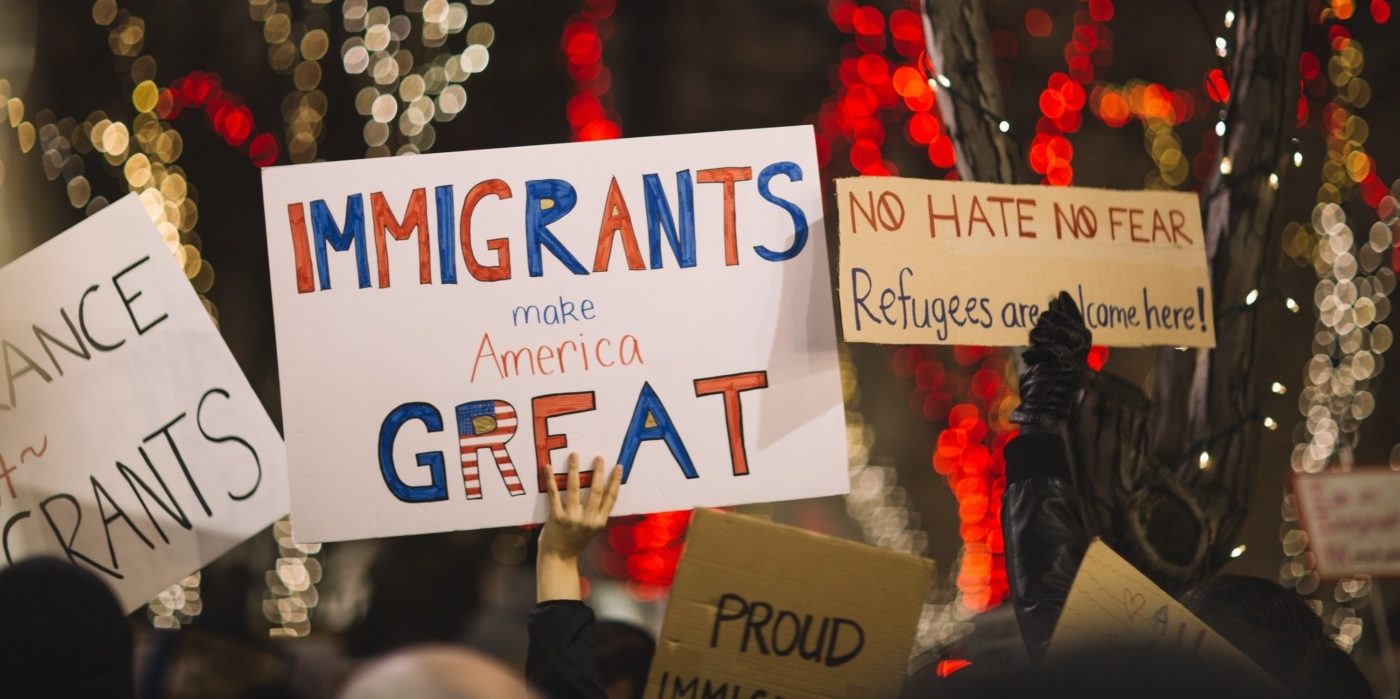The invisible victims of coronavirus
The coronavirus pandemic is furthering the vulnerability of migrants worldwide. Undocumented migrants and refugees are particularly at risk, primarily due to the fear of being deported if they report symptoms and seek medical aid.
As the UN Office of the High Commissioner for Human Rights explains: “Migrants and people on the move face the same health threats from COVID-19 as host populations but may face particular vulnerabilities due to the circumstances of their journey and the poor living and working conditions in which they can find themselves.”
The pandemic has revealed the xenophobia that still operates in today’s society, furthering the obstacles that migrants face with regard to social cohesion. Indeed, President Donald Trump referred to the coronavirus as the ‘Chinese virus’, exacerbating racism and discrimination against Chinese nationals living in the United States.
The United States has a considerably higher number of Covid-19 cases than any other country, yet undocumented migrants still fear seeking treatment for symptoms, due to their vulnerable position. Gladys Vega, the executive director of the social-justice organization Chelsea Collaborative, spoke to The Atlantic about the new fears faced by undocumented migrants in the United States.
“Because they’re afraid of their status,” Vega said, “they will not speak up.”
The US citizenships and immigration services announced in March that they would not penalise immigrants who sought healthcare for Covid-19. However, in reality this does not mean that they can freely seek treatment. As Wendy Parmet, a law professor at Northeastern University told The Atlantic: “If you go to the hospital and it turns out you’re [COVID-19]-negative, and actually what you have is some other ailment, you’re screwed.”
Much of this fear is driven by the worry of being sent to an ICE detention centre. According to The Miami Herald, letters written by current ICE detainees reveal the extent of suffering in these facilities.
“We may die and are afraid”, a collective note sent to a federal judge reads. The letter, pleading for immediate help, details the absence of basic requirements to prevent the spread of Covid-19: “We were served spoiled food, we’re starving, bathrooms are bad, violations of rights… beds are two feet apart and not six feet apart.”
The fears already experienced by undocumented migrants in the United States have become inflamed as a consequence of the pandemic.
Migrant workers on the frontline have been vital in keeping the NHS functioning throughout the peak, yet they could not even access free healthcare
Whilst undocumented migrants certainly face more severe challenges, those living and working abroad legally are also being disproportionately impacted by the pandemic. Mass unemployment and severe economic consequences of Covid-19 are making competition for jobs even fiercer and migrants even more likely to be exploited in the workforce. Indeed, lead economist for the World Bank, Dilip Ratha stated in an interview with The Economic Times: “Covid-19 will have an unprecedented effect on the migrant economy.”
In the UK, vital NHS workers from overseas have put their lives at risk and worked round the clock to provide lifesaving treatment for patients infected with the coronavirus. Yet, due to their migrant status, throughout the peak of the pandemic, they were required to pay to receive treatment if they became infected.
Boris Johnson was treated by two migrant nurses, Jenny McGee from New Zealand, and Luis Pitarma from Portugal, both of whom he thanked in a national address. Yet it was more than a month after this address before the Prime Minister eventually performed a U-turn on the NHS fee for foreign health and care workers.
According to a recent government report, approximately 170,000 members of NHS staff report a non-British nationality. Migrant workers on the frontline have been vital in keeping the NHS functioning throughout the peak, yet they could not even access free healthcare. Although this was eventually reversed for health workers, the much-delayed change still does not cover other migrants, many of whom have been key workers throughout the pandemic.
Whilst Britain and the United States have seen particularly high numbers of Covid-19 cases, the coronavirus is devastating migrants around the world. Migrant camps are a breeding ground for the virus, with cramped conditions and poor sanitation. Whilst the threat of deportation is not immediate for many undocumented migrants, due to current restrictions on international travel, they are all too aware of the vulnerability of their status.
The coronavirus has exacerbated the socio-economic problems already faced by migrants. Not only do they share the fear that everyone is facing, of being infected with Covid-19, but they also face heightened worries over their position in the country in which they currently reside.

Comments